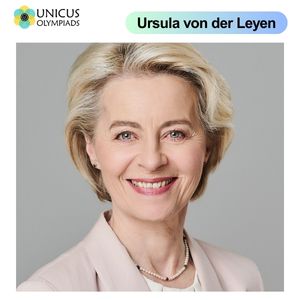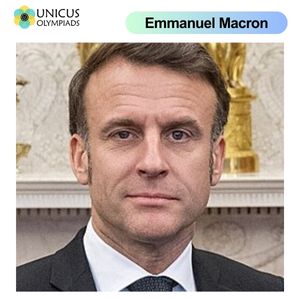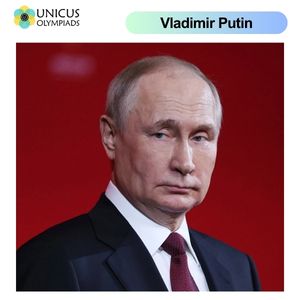

In the ever-changing landscape of global politics, certain leaders play pivotal roles in shaping the direction of their countries and the world at large. Among them are Ursula von der Leyen, President of the European Commission; Emmanuel Macron, President of France; and Vladimir Putin, President of Russia. Each of these leaders has influenced international relations, shaped economic policies, and navigated complex geopolitical challenges. This article explores how these leaders are impacting global politics, with a closer look at their leadership styles, policies, and the broader implications of their actions.
Ursula von der Leyen, a former German defense minister, became the first female president of the European Commission in December 2019. As the head of the EU's executive branch, von der Leyen has been at the forefront of key European initiatives, especially in areas of climate change, digital transformation, and foreign policy. She has worked to strengthen the EU’s global role and ensure its strategic autonomy in an increasingly multipolar world.

Von der Leyen’s leadership is marked by bold initiatives aimed at addressing both internal and external challenges faced by the EU. These include efforts to enhance climate action, foster digital innovation, and promote stronger EU ties with global powers such as the United States and China.
Von der Leyen’s leadership in the European Commission has enhanced the EU's global influence in several key areas. She has been instrumental in navigating the EU's response to geopolitical issues such as Brexit, tensions with Russia, and the COVID-19 pandemic.
Despite her successes, Ursula von der Leyen has faced criticism, particularly regarding her handling of the COVID-19 vaccine distribution. Critics argue that the EU was slow to secure vaccine supplies compared to other regions like the United States or the UK. Moreover, her leadership has been tested by the rise of populism within the EU, particularly in countries like Hungary and Poland, which challenge EU values like the rule of law and democracy.
Emmanuel Macron, elected President of France in 2017, has quickly emerged as a key leader in shaping European politics. Known for his centrist political platform, Macron has advocated for a more integrated and autonomous European Union, as well as for stronger global cooperation on climate change, security, and trade.

Macron has consistently pushed for a more assertive European Union, emphasizing the need for strategic autonomy in defense, digital innovation, and economic policy. He has also advocated for greater EU integration, particularly in foreign and defense policy, to ensure Europe’s position as a global power.
Macron’s leadership in France has had significant domestic and international repercussions. He has worked to reform the French economy, focusing on labor market flexibility, pension reform, and tax policies aimed at reducing the fiscal deficit. His pro-European stance has bolstered France's role in the EU, especially after the UK's departure.
Macron has faced significant domestic challenges, including widespread protests against his economic reforms, most notably the “Yellow Vest” movement, which began in 2018 as a response to rising fuel taxes. Despite these protests, Macron remains committed to his vision of a stronger European Union, though his popularity has fluctuated due to the ongoing challenges of reforming France’s economy and managing the political divisions within the country.
Vladimir Putin has been the President of Russia for over two decades, and his leadership has had a profound impact on Russian politics and international relations. Under Putin, Russia has reasserted its influence on the world stage, challenging Western powers and pursuing policies that promote Russian interests and expand its geopolitical footprint.

Putin’s leadership is characterized by strong centralized control and a focus on Russia’s national sovereignty and security. He has worked to consolidate power domestically, suppress political opposition, and maintain a tight grip on the media. Under his leadership, Russia has focused on rebuilding its military and economic power, making strategic investments in energy, defense, and cybersecurity.
On the international stage, Putin has played a key role in shaping Russia’s foreign policy, which often revolves around challenging Western influence, particularly that of the United States and the European Union. He has sought to expand Russia's geopolitical influence in regions such as Eastern Europe, the Middle East, and Central Asia.
Putin’s leadership has faced widespread criticism both domestically and internationally. Domestically, critics argue that his administration suppresses political opposition, restricts freedom of speech, and undermines democratic institutions. Internationally, Russia’s actions in Ukraine, Syria, and its interference in foreign elections have led to sanctions and strained diplomatic relations with many countries.